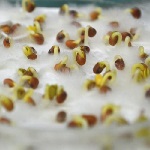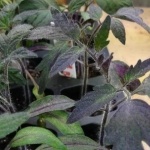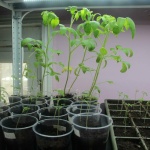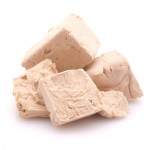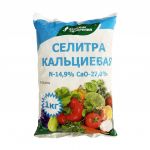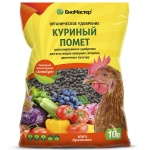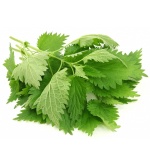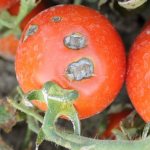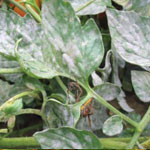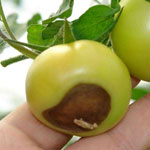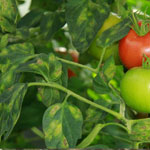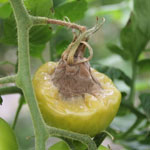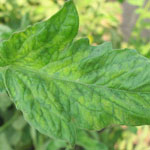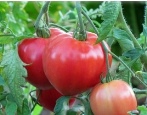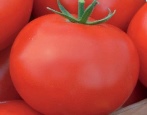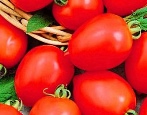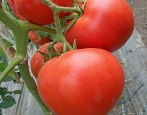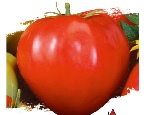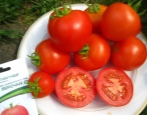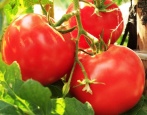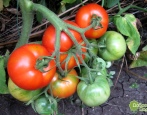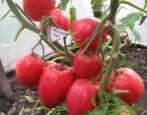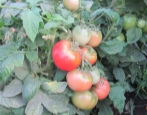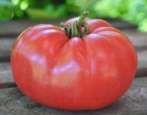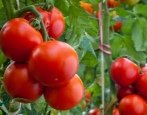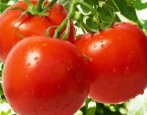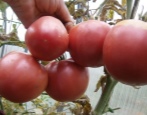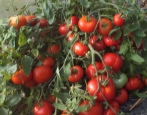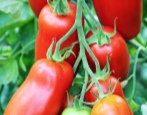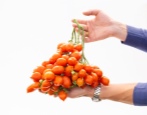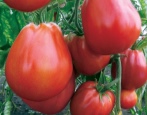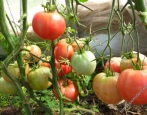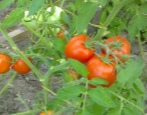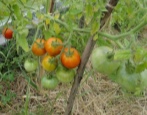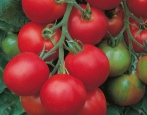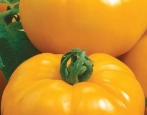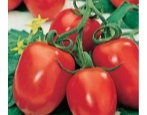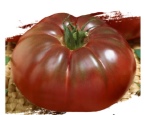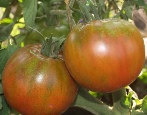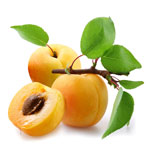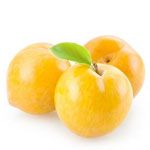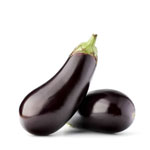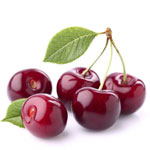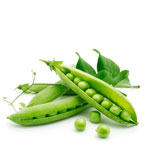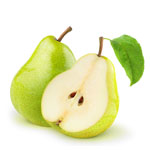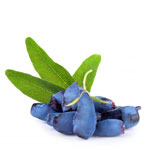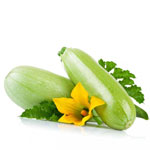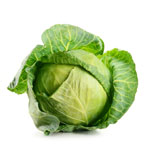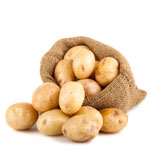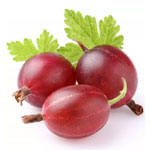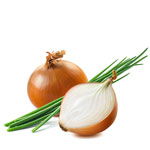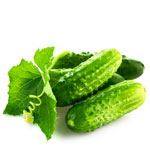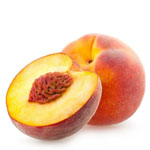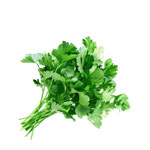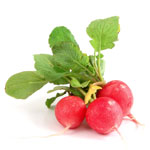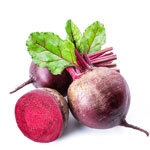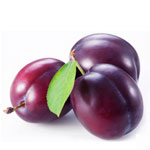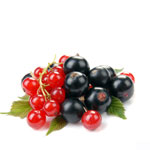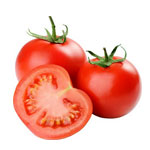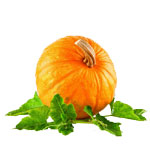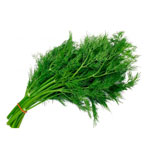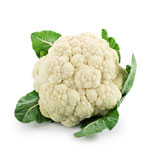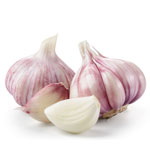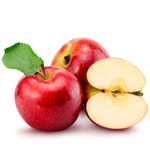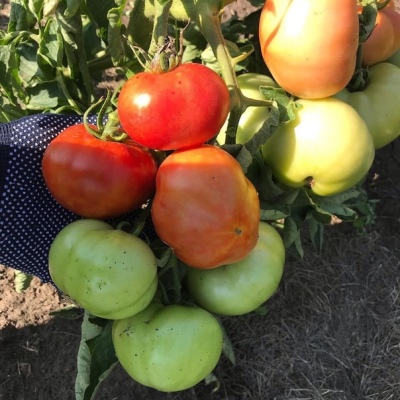
- Authors: Kachainik V.G., Chernaya V.V. (Agrofirma Aelita LLC)
- Year of approval: 2008
- Category: hybrid
- Growth type: determinant
- Appointment: fresh consumption, for whole-fruit preservation, for juice
- Ripening period: early
- Ripening time, days: 93-95
- Growing conditions: for open ground, for film greenhouses
- Bush size: undersized
- Bush height, cm: 65-75
A tomato with a tender name Laskoviy Misha will appeal to many vegetable growers. It will yield a large yield even with minimal maintenance and outdoor cultivation.
This hybrid from the well-known Russian company "Aelita" is distinguished by its unpretentiousness and good immunity.
Breeding history
Laskovy Misha is a creation of breeders from LLC Agrofirma Aelita V. V. Chernoy and V. G. Kachainik. Laskovy Misha was allowed to be used in 2008.
Description of the variety
Affectionate Misha is an early ripe hybrid. It can be grown both under film shelters and in beds, in the open field.
Growth type is determinant. A low-growing plant with a thick trunk. Bushes reach a height of about 65-75 cm. But there are also higher.
The foliage is dense. The leaves are dark green, large and powerful. The inflorescence is simple. The brush is very neat and compact. The peduncle is articulated. A brush with ripe fruits (usually 4-5 pieces) can be cut off whole.
The purpose is universal. These juicy tomatoes are good not only fresh, but also in preparations for the winter. Ideal for canning whole fruits. Do not crack. The juice is also good.
Transportable. Laskoviy Misha tomatoes can be transported over long distances. Their skin is dense, so they hardly wrinkle.
The main qualities of the fruit
Unripe tomatoes are light green. Fully ripe fruits are intensely red. They are flat-round in shape, ribbing is insignificant.
The weight of each of them is 100-170 g. Some tomatoes reach a weight of 200 g. It all depends on the quality of plant care.
The skin is smooth, glossy. The fruits are juicy, the seeds are small.
They keep well. After collection, they lie for about 45 days.
Taste characteristics
Under the hard skin there is a dense, but very tasty and juicy pulp. The taste is excellent, pleasant, rather sweet, with a slight sourness.
Ripening and fruiting
Affectionate Misha is a tomato with an early ripening period. On the 93-95 day after the plant shoots, you can harvest.
Ripening and harvesting dates fall on the last two summer months.
Yield
Affectionate Misha has a high yield. From a plot of 1 sq. m, you can collect about 3.8 kg of fruit.
From one bush, subject to all agrotechnical measures (timely planting, weeding, watering, fertilizing), up to 2 kg of appetizing fruits can be removed.
The timing of planting seedlings and planting in the ground
Sowing seeds is recommended to be carried out from the last decade of March to almost mid-April.
A dive is carried out when a small tomato has 2 true leaves.
Young plants are planted after 45-55 days. If the sowing took place within the recommended time frame, then the landing in the ground should be from May 15 to June 5.
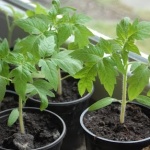
Growing tomato seedlings is an extremely important process, because it largely depends on whether the gardener will be able to harvest at all. All aspects must be taken into account, from seedbed preparation to planting in the ground.
Landing scheme
The planting scheme is 50 by 40 cm. Thus, on a ridge with an area of 1 sq. m planted 4-5 bushes of tomatoes Laskovy Misha.
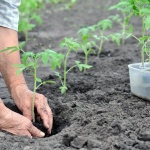
Growing and care
Tomatoes of the determinant type. The bush must be formed, the culture requires partial pinching.
Needs a tie to a nearby support. Despite the fact that the stems and shoots of this hybrid are powerful, they can break under the weight of ripening fruits.
Affectionate Misha is shade-tolerant and stress-resistant. He only needs timely watering, weeding and feeding with mineral or organic fertilizers. Yield indicators will be at the level stated by the manufacturer.
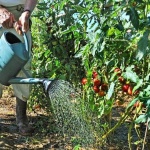
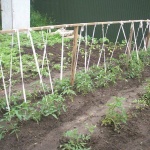
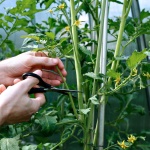
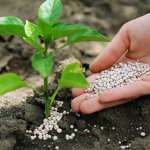
A plant needs different micronutrients at each stage of growth. All fertilizers can be divided into two groups: mineral and organic. Folk remedies are often used: iodine, yeast, bird droppings, eggshells.
It is important to observe the rate and period of feeding. This also applies to folk remedies and organic fertilizers.
Disease and pest resistance
The hybrid has strong immunity to many diseases. He shows resistance to such ailments as:
cracking of fruits;
viral tobacco mosaic;
fusarium wilting of tomatoes;
alternaria;
top rot of fruit.
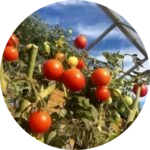
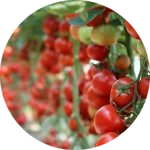
Resistant to adverse weather conditions
Affectionate Misha tolerates unfavorable weather conditions for vegetable crops quite easily. The rain and heat will not harm the plant much. The culture is also resistant to sudden changes in temperature and humidity.
Growing regions
Tomatoes of this variety can be grown almost everywhere. The following regions are suitable:
northern and Northwest;
Central and CChO;
Lower Volga and Middle Volga;
East and West Siberian;
Volgo-Vyatsky;
Far Eastern;
North Caucasian.
Review overview
Reviews of experienced and novice vegetable growers about the tomato Laskovy Misha are positive. The seeds are distinguished by a high, almost one hundred percent germination rate.
This vegetable is also praised for its excellent taste.With proper care, the fruits grow even more than according to the declared characteristics. The total weight of the harvested crop, as a rule, exceeds the figures announced by Agrofirm Aelita LLC.

